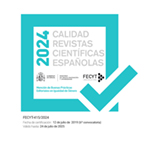“Freedom from jobs” or learning to love to labor? Diversity advocacy and working imaginaries in Open Technology Projects
Abstract
This paper examines imaginaries of work and labor in “open technology” projects (especially open source software and hackerspaces), based on ethnographic research in North America. It zeroes in on “diversity initiatives” within open technology projects. These initiatives are important because they expose many of the assumptions and tensions that surround participatory cultures. On the one hand, these projects and spaces are organized around voluntarism; in theory, everyone who wishes to participate is welcome to do so. On the other hand, diversity initiatives form in order to address the “problem” of imbalance in the ranks of participants. Technology is a unique domain for the discharge of political energies. In collective imagination, it has been vested with the power to initiate change (even as this belief obscures the role of social and economic relations). Multiple ideas circulate about the relationships between diversity in open technology projects and paid labor. This paper argues that in part due to the legacy of technical hobbies as training grounds for technical employment for much of the twentieth century, as documented by historians of radio (Douglas, 1987; Haring, 2006), voluntaristic technology projects are vexed sites for imagining political emancipation. To a large degree, diversity initiatives in open technology projects are consistent with corporate values of diversity as a marketplace value. At the same time, collectivity formations around technology that incorporate feminist, antiracist, or social justice framings may begin to generate connections between diversity advocacy in tech fields and social justice movements or policy changes in order to effect deep social change.
Downloads
Publication Facts
Reviewer profiles N/A
Author statements
- Academic society
- N/A
- Publisher
- Grupo de Investigación Cultura Digital y Movimientos Sociales. Cibersomosaguas
Article download
License
In order to support the global exchange of knowledge, the journal Teknokultura is allowing unrestricted access to its content as from its publication in this electronic edition, and as such it is an open-access journal. The originals published in this journal are the property of the Complutense University of Madrid and any reproduction thereof in full or in part must cite the source. All content is distributed under a Creative Commons Attribution 4.0 use and distribution licence (CC BY 4.0). This circumstance must be expressly stated in these terms where necessary. You can view the summary and the complete legal text of the licence.













